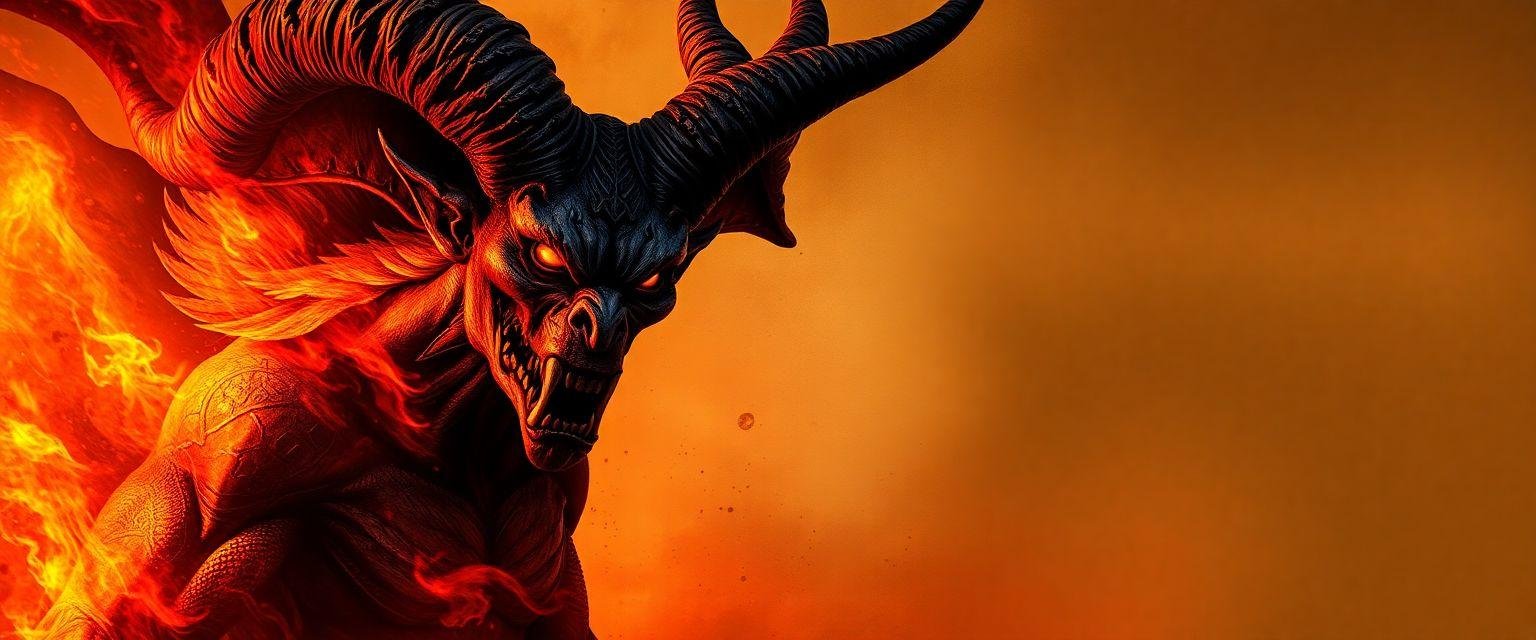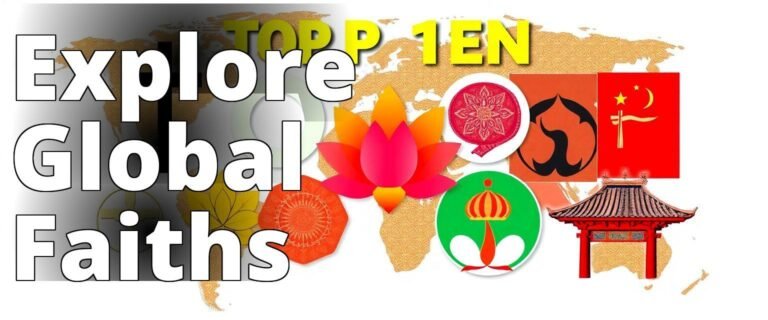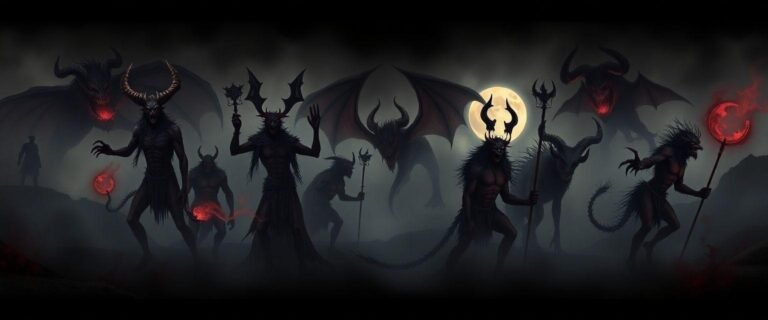Demon
What makes demons such a fascinating and enduring part of our cultural and religious narratives? Demons have intrigued humans for centuries, and their presence in stories from around the world suggests they play a significant role in how we understand good versus evil, fear, and the unknown. The concept of demons is not just a relic of ancient times but remains vibrant and relevant today. Let’s walk through the cultural and religious perspectives on demons, exploring how these beings have shaped human belief systems and continue to captivate our imaginations.

Understanding Demons Across Cultures
Explore various cultural and religious perspectives on demons, uncovering beliefs and interpretations.
– Demons are viewed differently in Abrahamic religions, where Christianity sees them as fallen angels, Islam considers them as jinn, and Judaism connects them to evil spirits.
– Other religions also have unique interpretations, often relating demons to moral lessons or spiritual entities.
– Demonology, the study of demons, encompasses these beliefs, providing insights into how different cultures understand malevolence and the supernatural.
Etymology
Have you ever wondered where the word “demon” comes from? The term itself has a rich history that dates back thousands of years. The word “demon” originates from the Greek word “daimon,” which originally meant a divine power or spirit. These spirits were not necessarily evil; in fact, they were often viewed as intermediaries between gods and humans, capable of influencing human affairs positively or negatively.
As language evolved, so did the meaning of “demon.” By the time of the Roman Empire, the term began to take on a more sinister connotation, influenced heavily by the spread of Christianity, which sought to categorize all non-Christian spirits as evil. This transformation in meaning is a prime example of how language and culture are intertwined. When you think about it, how often do we consider the origins of the words we use and their historical baggage?

Insider Tip: Linguist Dr. Emily Thompson notes, “Understanding the etymology of words like ‘demon’ can offer insight into how societies evolve and define their moral landscapes.”
Beliefs
Abrahamic Religions
Christianity
In Christianity, demons are typically seen as fallen angelsbeings that were cast out of heaven due to their rebellion against God. This belief primarily stems from interpretations of biblical texts, such as Revelations and the story of Lucifer. Demons in Christianity are often portrayed as malevolent forces that tempt humans away from the path of righteousness. They are frequently depicted in literature and art as grotesque creatures, further solidifying their image as agents of evil.

One of the most famous tales involving demons in Christianity is the story of Jesus casting out demons into a herd of pigs, demonstrating his divine power over evil. This story, found in the New Testament, has been interpreted in various ways but consistently highlights the struggle between good and evil.
Thought-Provoking Question: Why do you think demons are often depicted as grotesque and terrifying? What does this say about our fears and cultural biases?
Islam
In Islam, demons are known as “jinn” and have a complex nature. Unlike the purely evil depiction in Christianity, jinn in Islam are beings created by God from smokeless fire. They possess free will, like humans, which means they can choose to do good or evil. Some jinn are benevolent, while others, like Iblis (the Islamic equivalent of Satan), choose to defy God and lead humans astray.

The Quran mentions jinn frequently, and they play a significant role in Islamic theology and folklore. They live in a parallel world to humans, invisible to us but capable of influencing our world in mysterious ways. This dual nature of jinn challenges the simplistic dichotomy of good versus evil and adds depth to Islamic eschatology.
Insider Tip: Islamic scholar Dr. Ahmed Zaki suggests, “The concept of jinn invites believers to recognize the complexity of moral choices and the unseen influences on human behavior.”
Judaism
In Jewish tradition, demons, or “shedim,” are less central than in Christianity or Islam but still present in folklore and religious texts. The Talmud and other Jewish writings describe shedim as beings created during the twilight before the first Sabbath, neither fully spiritual nor fully physical. They are often seen as mischievous rather than purely evil.

One notable demon in Jewish folklore is Lilith, often portrayed as a night demon who preys on pregnant women and infants. Her story has evolved over centuries, reflecting changing attitudes towards women and family roles in Jewish culture.
Other Religions
Beyond the Abrahamic traditions, demons play various roles in other religions and cultures. In Hinduism, for instance, demons, or “asuras,” are often depicted as powerful beings challenging the gods, representing the eternal struggle between dharma (righteousness) and adharma (unrighteousness). This struggle is vividly illustrated in epic tales like the Ramayana and Mahabharata, where demons embody the forces of chaos and disorder.

In Buddhism, demons are not seen as inherently evil but as symbols of negative emotions and desires that must be overcome on the path to enlightenment. “Mara,” the tempter, famously tried to distract Siddhartha Gautama (the Buddha) from achieving enlightenment, representing the internal struggles we all face.
Thought-Provoking Question: How do the roles and perceptions of demons in non-Abrahamic religions differ from those in Christianity, Islam, and Judaism? What does this say about the universality of human fears and moral struggles?
Demonology
Demonology is the study of demons, their origins, characteristics, and influence on the world. This field of study has fascinated scholars, theologians, and occultists for centuries, seeking to understand these enigmatic beings’ role in human history and culture.

Historically, demonology has been both a theological and philosophical endeavor, often intertwined with the practice of exorcism in Christianity. Medieval demonologists like Heinrich Kramer, author of the infamous “Malleus Maleficarum,” wrote extensively about the nature of demons and how to combat them. While many of these writings are now viewed as products of their time, steeped in superstition and fear, they provide valuable insights into the historical perceptions of evil.
In modern times, interest in demonology has seen a resurgence, fueled by popular culture, horror films, and literature. This renewed interest often reflects contemporary societal anxieties, transforming age-old fears into new narratives.
Insider Tip: Occult historian Dr. Lisa McGovern says, “Demonology today is as much about understanding human psychology and societal fears as it is about the supernatural.”
Related Topics
- Exorcism: The religious or spiritual practice of evicting demons or other spiritual entities from a person or an area. Modern exorcism practices can be traced back to ancient times and are still performed today in various religious traditions.
- Mythology: Many cultures have mythologies that include demons or demon-like entities. Exploring these stories can reveal much about the values and fears of a society.
- Psychology of Fear: Analyzing why demons are such effective symbols of fear can uncover deeper insights into human psychology and the role of fear in society.

For further exploration of these topics, visit our index page for more articles and insights into the supernatural.
References
- Etymonline: The etymology of the word “demon”
- The Bible and the Quran: Texts involving demons and jinn
- Jewish Virtual Library: Shedim and Jewish folklore
- Ancient Origins: Demons in Hinduism and Buddhism
- Smithsonian Magazine: The historical study of demonology
Conclusion
Demons, as we’ve seen, are more than just mythical creatures lurking in the shadows of our imagination. They are reflections of our deepest fears, moral dilemmas, and cultural narratives. Whether viewed through the lens of religion, mythology, or psychology, demons continue to challenge and captivate us. Their stories remind us of the complexities of good and evil and our eternal struggle to understand the unknown. As we navigate the ever-evolving landscape of human beliefs, perhaps the most important question is: what do our interpretations of demons say about us?
FAQ
What are the cultural perspectives on demons worldwide?
Various cultures view demons differently, often reflecting their beliefs.
How do religions interpret the concept of demons?
Religions interpret demons as malevolent spirits with distinct roles.
Who studies the impact of demons in cultural contexts?
Scholars in anthropology and theology study demons in cultural contexts.
What role do demons play in folklore and storytelling?
Demons often symbolize moral struggles and societal fears in folklore.
How can understanding demons enhance cultural awareness?
Understanding demons fosters empathy and respect for diverse beliefs.
Why do some dismiss the existence of demons in cultures?
Skeptics often cite lack of empirical evidence to question demons’ reality.







